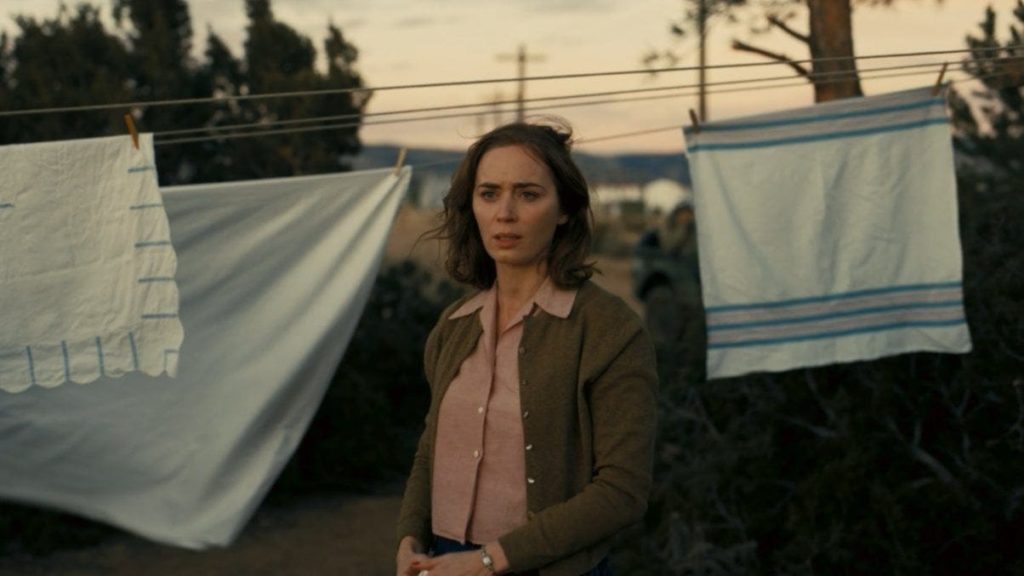Oppenheimer: It’s not about you.
Since its release, several people have asked me what I thought of Christopher Nolan’s Oppenheimer. And I have said the same exact thing every time: It might be the best movie I’ve ever seen.
I’m not really a movie guy. Don’t get me wrong, I’ve seen plenty of them. I know what makes them tick, and I can tell a good one from a bad one. I’m confident assessing them and picking them apart. But it’s the medium of entertainment I’m least literate in.
I know that on first glance such a declaration seems reactionary and heavily influenced by recency bias. One hundred years of cinema and this is the best? The movie that was basically a meme?
Part of me was intimidated by the idea that I just witnessed the zenith of a particular artform. I tried to talk myself into a more measured praise, comparing it to other movies, and looking for missteps. Maybe I could convince myself that it was really good, but nothing special. One of Christopher Nolan’s best instead of the best.
This rumination didn’t work. It’s not without its flaws, but I truly do believe in my heart of hearts that it is a historic, generational triumph, and– if I dare to make a more objective claim– ought to be considered one of the best movies ever made.
The film centers around the personal life of physicist J. Robert Oppenheimer (Cillian Murphy), his helming of the Manhattan Project, and the political fallout that ensued, with the heavy involvement of one Lewis Strauss (Robert Downey Jr.)

Grossing over $900 million to date, it’s the most successful biopic ever, and the most successful film in Nolan’s career. I typically don’t consider commercial success when judging a piece of media, but I think Oppenheimer’s stature factors into its quality. I don’t agree with the substance of the “film bro” meme that’s become popular as of late, but it’s true that some things get written off when they reach a certain level of popularity. There’s plenty of mass-produced popcorn movies out there, but also endless volumes of more artistic works that “serious” film buffs tend to favor. Plenty of things from both of these categories are excellent, but I think something really ascends when it can perform a balancing act. It takes a lot of skill to make art with an equal amount of mass appeal and intellectual merit.
Oppenheimer is three hours long with an excessively complicated structure. Every line of dialogue is vitally important, and there are really no minor plot points or characters, everyone and everything gets expanded on to some degree. And yet, there are still jokes and cameos. It never feels dreary or slow. Some people will be familiar with the basics of quantum physics, but if you aren’t, the film goes out of its way to explain scientific concepts in artful ways (“gravity swallows light.”)
I’ve seen it described as “three hours of people talking in rooms over loud music.” But it’s a quick three hours, and the music is perfect. There was a real danger, here, that its volume and tone would be misplaced. Giant swells of brass and violin sweeping over scenes of people calmly talking about science could very easily feel disjointed. But it never does. The grandiosity of the score is justified by the importance of the subject matter– Col. Groves (Matt Damon) refers to the Manhattan Project as “the most important thing to happen in the history of the world,” and that’s not an exaggeration. So, yes, these people are talking in rooms over loud music.
It also helps that these rooms are so intentionally composed. We got a few sweeping New Mexico vistas, and my favorite shots were the blink-and-you’ll-miss-it visualizations of quantum physics. But most of the film takes place in offices, board rooms, and houses. The color palette is stark and simple, lots of grays, browns, and whites, but it never looks bland. The rooms are deliberately arranged– not in the rigid, twee way like a Wes Anderson shot, but more natural and realistic.
And I don’t quite know what it is, but something about the lighting makes the characters look so powerful. Jean Tatlock (Florence Pugh) is a normal woman, but between her radical politics and this lighting, she comes across as a femme fatale, especially during the more intimate scenes (which caused audible gasps from the audience). This energy is also applied to Kitty Oppenheimer (Emily Blunt). I don’t think this was the right direction for her character, but Emily Blunt pulls it off, giving the best performance of her career.

I think the same could be said for most of the major players. Murphy, RDJ, Pugh, you could even make an argument for Damon. All spectacular, all sitting and talking in rooms.
Of course, it’s in one of these rooms that the characters decide where to deploy their new invention.
I’m not going to talk about the real-life bombing of Hiroshima and Nagasaki. It’s a subject that much smarter people than me have been deliberating for the better part of a century. Instead, I will only use the content of the artwork I am evaluating.
Preceding the release of the film, there was a genuine fear that it would handle the subject matter poorly, that Nolan’s message would be wrong somehow.
This fear was not realized. It’s a bit more nuanced than this but for the most part, the film is firmly anti-bomb. Oppenheimer himself is sincerely torn throughout the whole thing, often speaking out of both sides of his mouth– “I don’t know if we can be trusted with such a weapon, but I know the Nazis can’t.” However, Cillian Murphy’s performance cues us into the truth: they should not have created the atomic bomb. The execution of this should earn Murphy the Oscar, in my view. You can hear it in his voice, see it on his face, he can barely stomach what he’s doing. “I am become death, destroyer of worlds” is not what you say after accomplishing something you’re proud of. He knew it was wrong at the time, and he regrets it.
This is made more explicit by the ending, where Oppenheimer admits to Albert Einstein (Tom Conti) that his fears of global destruction may come to fruition after all. The final shots of the film are a brief montage of hypothetical bombs flying through the air. While the atmosphere didn’t literally catch fire as Oppenheimer feared, the bomb has permanently devastated the way the world conducts itself. We have the means of apocalypse within our reach, and it colors every interaction between nations, it introduces negative infinities into every conflict.
It’s not a perfect movie. The actual detonation of the bomb is underwhelming (though interestingly presented). At times, it was difficult to care about Oppenheimer’s security clearance. And the constant switching between time periods and perspectives often bordered on being confusing, and you notice points in the script where Nolan realizes he needs to catch us up to speed.
The most serious flaw, in my view, is the disinterest in any Japanese perspective at all. If Nolan didn’t want to speak on behalf of a group of people, I respect that, but I feel it would have been helpful to at least show us the devastation. At one point the scientists at Los Alamos are shown pictures of Japan after the bombs were dropped– they recoil in horror and disgust as the slideshow progresses– but the audience isn’t shown these same images. I think that was a mistake. Maybe not actual pictures of actual victims, there’s a way to make it respectfully artful. Don’t give into the audience’s voyeuristic instincts– make me feel bad.
Or, since this film is so preoccupied with government and politics, maybe give us a scene with Emperor Hirohito conversing with his high council or something. Cue us into their thought process.
Or maybe it’s not necessary. Maybe this isn’t a story about the victims.

The film has this thematic webbing, you can pluck on any string and say it’s the whole point. The thing that resonated with me the most was the idea that it’s not about you. Or anyone. It’s not about Oppenheimer, or Tatlock, or Groves. “Stories are about characters,” that’s the first rule, but this film is more so about what these characters do to the world and each other. Now, granted, you can say this about literally every story ever written, but in this case there’s emphasis and intent behind it.
Don’t be mistaken: you matter. In fact, you matter quite a lot. You can impact the world in ways you can’t begin to imagine. That is what you are, and the idea that you’re secretly something other than the things you say, do, and think is absurd.
This theme is best embodied by Lewis Strauss, one of my new favorite characters in all of fiction. He abuses his power to destroy Oppenheimer’s reputation as revenge for petty embarrassment. He’s not mad or obsessed, he stays level-headed throughout. He makes the relatable mistake of overestimating his righteousness, and assuming Oppenheimer reciprocated his anger when he was actually focused on something more important.
We get so caught up in being heard, being seen, “telling our stories.” This is your story, this is my story– my journey. How do we make sure this group or that group is getting their story told? Whose story needs to be told more than others? This story does enough for these people, and too little for these other ones. Document, advocate, represent; “bodies and spaces.”
You’re important. But it’s not about you. Maybe art and entertainment can simply be artful and entertaining. Maybe something can be great for its own sake.

